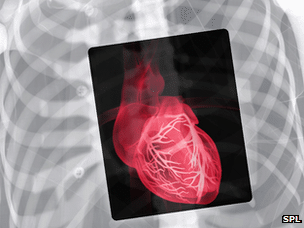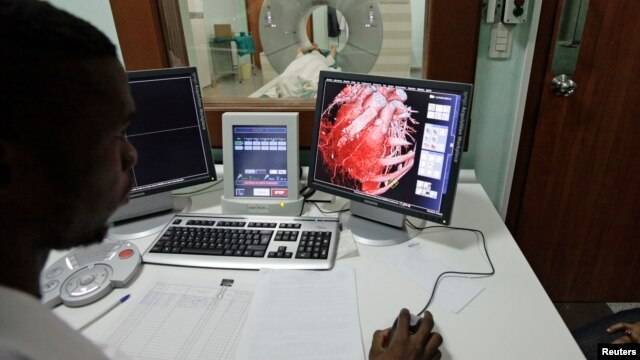Virus engineering to heal hearts...

Gene therapy: 'Heart-healing virus' trial starts
30 April 2013 - Patients in the UK have been enrolled into a trial to see if an engineered virus can be used to heal their damaged and struggling hearts.

Gene therapy: 'Heart-healing virus' trial starts
30 April 2013 - Patients in the UK have been enrolled into a trial to see if an engineered virus can be used to heal their damaged and struggling hearts.
The trial will use a virus to introduce genetic material into heart muscle to reverse the organ's decline. The British Heart Foundation said the idea had "great potential" but needed to be proven in clinical trials. Heart failure affects more than 750,000 people in the UK and can leave some people too weak to climb the stairs. It occurs when the organ is damaged, for example after being starved of oxygen in a heart attack, and becomes too weak to effectively pump blood around the body. There have been huge medical leaps in keeping patients alive after a heart attack, but the consequence is a rapidly growing number of people living with heart failure.
Researchers at Imperial College London found levels of the protein SERCA2a were lower in heart-failure patients. So they devised a genetically modified virus, with the instructions for producing more of the protein, that can infect the heart. The virus will be released into the damaged heart muscle of the 200 patients involved in the trial via a tube inserted into the leg and pushed up through the blood vessels. Prof Sian Harding, from Imperial College London, said: "It's bringing [the heart] back to the point where patients were pretty well, just after the initial damage occurred. "We think this is a treatment that can improve quality of life for quite a lot of people."

Heart failure is increasingly common
Dr Alexander Lyon, a cardiologist at Royal Brompton Hospital, where some patients will take part in the trial, said: "This is the first ever gene therapy trial for heart failure. "Our goal is to fight back against heart failure by targeting and reversing some of the critical molecular changes arising in the heart when it fails." The Golden Jubilee National Hospital in Clydebank is also taking part in the trial. Dr Mark Petrie said: "As a national service treating Scottish patients with the most serious heart failure, it is vital that we are at the forefront of new research and developments."
Prof Peter Weissberg, the medical director of the British Heart Foundation, said: "Whilst drugs can offer some relief, there is currently no way of restoring function to the heart for those suffering with heart failure. "Gene therapy aims to improve the function of weak heart muscle cells, whereas our Mending Broken Hearts Appeal is aimed at finding ways to replace dead heart muscle cells after a heart attack. "Both approaches are novel and both offer great potential for the future."
BBC News - Gene therapy: 'Heart-healing virus' trial starts



